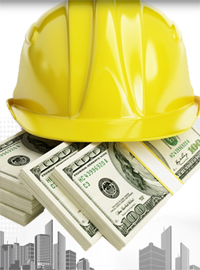| Labor Costs Drive More Cities into Bankruptcy, Union Political Spending Four Times Higher Than Earlier Estimates |
 |
|
By Timothy H. Lee
Thursday, July 12 2012 |
Compare the real-world results of conservative versus liberal governance in America. In states like Wisconsin and Indiana, leaders such as Scott Walker and Mitch Daniels save their constituents from fiscal catastrophe. In contrast, union-dominated liberal utopias like California continue to lurch toward their alternative Greek fate. Just this week, the city of San Bernadino authorized bankruptcy due to a $45 million deficit out of a $130 million overall budget. Labor costs constitute some 80% of that budget, and pension obligations have doubled since the 2006-2007 fiscal year alone. But as noted by The Wall Street Journal, “The unions’ idea of a concession is allowing newly hired public safety officers to retire with 90% of their highest salary at age 55 instead of 50.” San Bernadino’s travails arrive just weeks after its fellow California city of Stockton became the largest municipality in America to file for bankruptcy, similarly burdened by unsustainable labor and public pension obligations. According to budget analysts, other despondent California cities with similar obligations may soon follow. Meanwhile, we also learned this week that labor unions spent four times as much on partisan politics than earlier estimated. The two phenomena are not coincidental. Moreover, it speaks volumes about labor leaders’ priorities that they spent billions on political campaigns while their members endured economic strain. According to previous reports, labor leaders spent $1.1 billion on campaigning between 2005 and 2011. Those estimates, however, were based upon Federal Election Commission (FEC) reports, which count only direct contributions to federal candidates. An array of reports to the Department of Labor, however, encompasses a broader measure of state and local campaign spending, as well as such activities as feeding workers at political protests, lobbying, attorneys’ fees, consulting costs, postal charges and efforts to persuade union members to vote in a particular way. The Labor Department, unlike the FEC, requires unions to report spending on those types of political activities. And according to those broader Labor Department reports, unions actually spent $4.4 billion on political activities between 2005 and 2011, not $1.1 billion. It gets worse. Even as economic conditions declined and union member unemployment increased since 2005, labor bosses at the five largest unions have steered more dollars toward partisan activities, not fewer. The AFL-CIO, for instance, increased spending on politics and lobbying from $452 million in 2005-2006 to $608 million in 2009-2010. It spent $316 million in the non-election year of 2011 alone, highlighted by the failed assault on Governor Walker in Wisconsin. Likewise, the Service Employees International Union (SEIU) spent $62 million in 2005 and 2006, but $150 million in 2009 and 2010, and the American Federation of State, County and Municipal Employees (AFSCME) nearly doubled its political spending from $75 million during the 2005-2006 political cycle to $133 million in the 2009-2010 cycle. So at a time when union leaders should arguably devote more resources toward actual suffering members, they have instead intensified their partisan political spending. How many meals to unemployed families could be provided, how many delinquent mortgage or car or credit card payments could be covered, how many children’s shoes could be provided to union households from that $4.4 billion spent instead on politics? Or perhaps only from the tens of millions of dollars needlessly wasted against Governor Walker? And it’s not just unemployed union members who should be upset. Members who remain employed, however tenuously, continue to subsidize union leaders’ salaries and political projects through deductions from their hard-earned wages. When exit polls suggest that nearly 40% of voters from union households supported Gov. Walker, dues-paying members must wonder about the propriety of bosses spending those dues on left-wing politicians and causes. Union leaders will rationalize that their spending merely offsets corporate political spending. And under the same First Amendment freedoms that they attempt to deny other groups, they are free to do so. One critical difference, however, is that corporate dollars essentially split between Democratic and Republican candidates. In 2008, in fact, 55% of dollars from corporate political action committees and employees went to Democrats, not Republicans. In contrast, 92% of union dollars went toward Democrats. Cumulatively, these revelations paint an unflattering picture of today’s labor leaders. It’s bad enough that they spent four times as much on partisan activity as previously realized. It’s bad enough that they increased political spending even as economic conditions for their members deteriorated. But as bankrupt cities like Stockton and now San Bernadino show, union leaders are also jeopardizing entire communities with the destructive cycle of political patronage and unsustainable taxpayer obligations they create. |
Related Articles : |
























